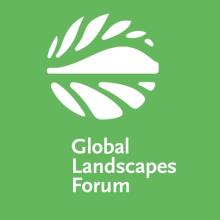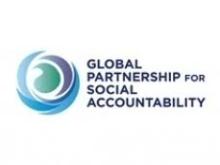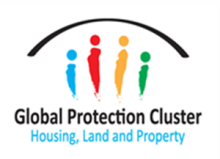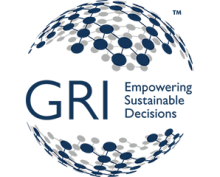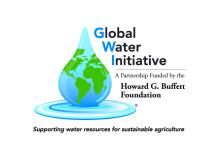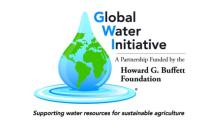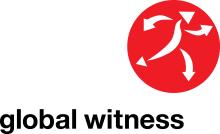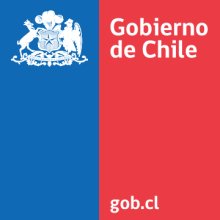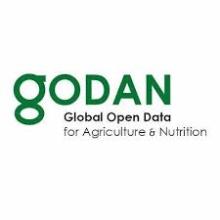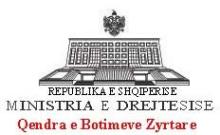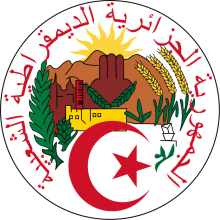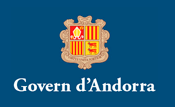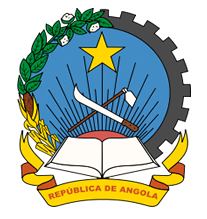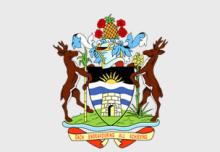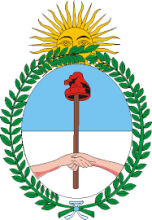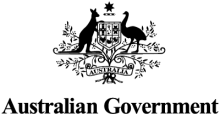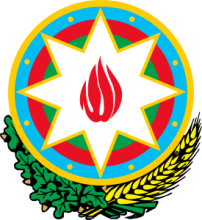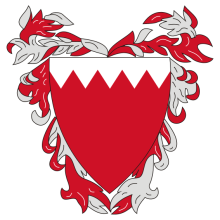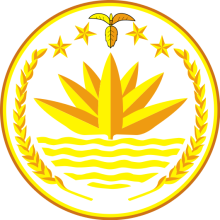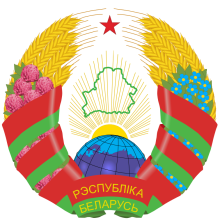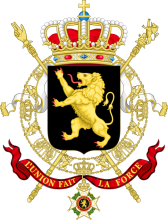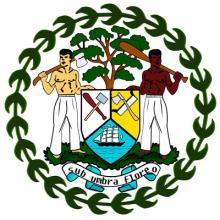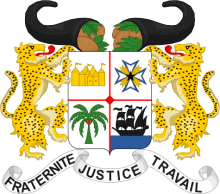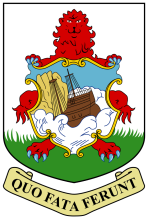The Land Library includes resources from more than 1,900 national and international information providers. Learn more about the organizations and institutions using the Land Portal to share their open-access research, data and stories.
Global Landscapes Forum
The Global Landscapes Forum (GLF) is a multi-stakeholder platform with a global secretariat led by CIFOR and core funding provided by the Government of Germany. The GLF accelerates action towards the creation of productive, prosperous, equitable and climate-resilient landscapes and the achievement of the UNFCCC Paris Agreement and Sustainable Development Goals (Agenda 2030). Charter members: Agronomique pour le Développement (CIRAD), Center for International Forestry Research (CIFOR), Conservation International, Ecoagriculture Partners, Evergreen Agriculture, Forest Stewardship Council (FSC), Global Environment Facility (GEF), Indigenous Peoples Major Group (IPMG), International Center for Tropical Agriculture (CIAT), International Centre for Integrated Mountain Development (ICIMOD), IFOAM - Organics International, International Network for Bamboo and Rattan (INBAR), International Union of Forests Research Organization (IUFRO), Rainforest Alliance, Rare, Rights and Resources Initiative (RRI), United Nations Environment Programme (UN Environment), Wageningen Centre for Development Innovation, part of Wageningen Research, World Agroforestry, World Wide Fund for Nature (WWF) Germany, Youth in Landscapes Initiative, World Bank Group
Global Online Access to Legal Information
GOALI - Global Online Access to Legal Information is a new programme providing free or low-cost online access to legal research and training in the developing world.
What is available?
- Academic and professional peer-reviewed journals, publications and databases in selected subject areas of law from the world's leading academic publishers.
Who can access GOALI?
- Researchers, students, librarians, policymakers, judges, legal experts through their institutions in 115 low- and middle-income countries .
- All institutions registered for any of the Research4Life programmes can access all of the programmes' portals, including GOALI.
Global Partnership for Social Accountability
The Global Partnership for Social Accountability (GPSA) aims to provide strategic and sustained support to civil society organizations’ (CSOs) social accountability initiatives to ultimately improve governance and service delivery. This Knowledge Platform, complemented with offline activities, has been envisioned as the main tool for supporting the learning, networking and knowledge exchange of the GPSA’s grantees and of other CSOs working on social accountability in the global south.
Global Protection Cluster Housing, Land, and Property Area of Responsibility
GLOBAL LEVEL COORDINATION
The Norwegian Refugee Council (NRC) has been leading the Housing, Land and Property (HLP) Area of Responsibility (AoR) since 2016. Globally, the membership of the HLP AoR includes UN agencies, NGOs, research and academic institutions, donors, human rights and development agencies, and representatives of other AoRs and global clusters.
In line with the Principles of Partnership, the HLP AoR operates as an open and inclusive forum with the view to benefit from the wide range of expertise within the HLP community of practice. If you are interested in learning more or contributing to the HLP AoR, please contact the Global HLP AoR Coordinator.
Overarching goal: to support a more systematic approach to addressing HLP issues on the ground; by promoting collaboration and complementarity of efforts amongst agencies undertaking HLP activities and by addressing gaps in policy and technical areas.
COUNTRY LEVEL HLP COORDINATION
HLP working groups facilitate the coordination of specialist HLP interventions and ensure that HLP issues are effectively taken into account in other relevant sectors of humanitarian assistance.
Currently, there are country level HLP coordination groups in: Afghanistan, Cameroon, CAR, DRC, Iraq, Nigeria, Somalia, oPt, South Sudan, Syria, Ukraine. For more information about any of these, please contact the Global HLP AoR Coordinator.
Global Reporting Initiative
Our mission is to empower decision makers everywhere, through our sustainability standards and multi-stakeholder network, to take action towards a more sustainable economy and world.
We believe:
- In the power of a multi-stakeholder process and inclusive network
- Transparency is a catalyst for change
- Our standards empower informed decision making
- A global perspective is needed to change the world
- Public interest should drive every decision an organization makes
Global Water Initiative - Afrique de l'Ouest
La GWI en Afrique de l'Ouest est mise en œuvre par un consortium constitué par IIED et l'UICN, et travaille principalement dans cinq pays : le Burkina Faso, la Guinée, le Mali, le Niger et le Sénégal.
Le travail de la GWI en Afrique de l'Ouest est guidé par la vision et la mission de la GWI au niveau mondial. En effet, toutes les régions de la GWI s’efforcent d’engendrer un changement significatif par le biais d'un plaidoyer et d'initiatives politiques intégrés pour:
- soutenir une gouvernance et l’élaboration de politiques plus efficaces à tous les niveaux pour garantir l'eau pour l'agriculture.
- améliorer la qualité des connaissances et rendre les informations pertinentes accessibles aux exploitants familiaux, tout en optimisant l'utilisation et les pratiques de gestion de l’eau des principales parties prenantes.
Global Water Initiative - East Africa
GWI in East Africa is led by CARE International. By working in Ethiopia, Tanzania and Uganda – and more widely across East Africa – GWI in East Africa focuses on developing evidence that highlights solutions to the challenges of water management and use in smallholder agriculture.
East Africa is a dynamic and rapidly changing region with huge natural and human resources and great innovation potential. Smallholder agricultural systems remain a key economic driver, providing between 60-90 percent of food production in different countries and the bulk of employment across the region. The World Bank estimates that growth in the agricultural sector is four times more effective in reducing poverty than GDP growth in other sectors. Strengthening the efficiency and productivity of smallholder systems, and building greater resilience in the face of a range of external stressors including increasing climate variability, is of critical importance to the region’s development and future economic growth.
We believe that the food security situation in East Africa can be enhanced through improved information flow at different levels and increased pressure on policymakers from both insiders and outsiders. The result will be smart investments in water for agriculture for smallholders, especially for women farmers.
Global Water Partnership
The Global Water Partnership (GWP) is a global action network with over 3,000 Partner organisations in 183 countries. The network has 86 Country Water Partnerships and 13 Regional Water Partnerships.
GWP's action network provides knowledge and builds capacity to improve water management at all levels: global, regional, national and local. GWP does not operate alone. Its networking approach provides a mechanism for coordinated action and adds value to the work of many other key development partners.
We are an ‘on-the-ground’ network that mobilises government, civil society, and the commercial sector to engage with each other to solve water problems.
Usually those problems stem from the demands of competing water users so it’s about how to manage, or govern, the resource itself. Our focus is on improving the way water is managed across sectors – it’s called the integrated approach.
Our comparative advantage is a large and diverse multi-stakeholder network that can deploy 20 years of knowledge and experience in applying the cross-sectoral integrated water resources management approach to sustainable development.
We’ve succeeded when water is managed sustainably while at the same time maximising social and economic welfare.
The network is open to all organisations involved in water resources management: developed and developing country government institutions, agencies of the United Nations, bi- and multi-lateral development banks, professional associations, research institutions, non-governmental organisations, and the private sector.
Global Witness
Global Witness exposes the hidden links between demand for natural resources, corruption, armed conflict and environmental destruction
Mission
Many of the world’s worst environmental and human rights abuses are driven by the exploitation of natural resources and corruption in the global political and economic system. Global Witness is campaigning to end this. We carry out hard-hitting investigations, expose these abuses, and campaign for change. We are independent, not-for-profit, and work with partners around the world in our fight for justice.
Vision
We want a better world -- where corruption is challenged and accountability prevails, all can thrive within the planet’s boundaries, and governments act in the public interest.
For two decades we’ve been campaigning for full transparency in the mining, logging, oil and gas sectors, so that citizens who own those resources can benefit fairly from them, now and in future.
We believe that the only way to protect peoples’ rights to land, livelihoods and a fair share of their national wealth is to demand total transparency in the resources sector, sustainable and equitable resources management, and stopping the international financial system from propping up resource-related corruption.
GLOCON
“Global change – local conflicts? Land conflicts in Latin America and sub-Saharan Africa in the context of interdependent transformation processes” (GLOCON) is a Junior Research Group working on the correlation between global change and local conflicts over land. The research project explores how global spatial-temporal transformation processes affect local land conflicts in sub-Saharan Africa and Latin America. Its focus lies furthermore on the analysis of systematic similarities and differences between those regions. GLOCON analyses and compares conflicts over land in a range of sub-Saharan and Latin American countries.
Directors: Dr. Kristina Dietz and Jr.-Prof. Dr. Bettina Engels, Free University of Berlin (Freie Universität Berlin)
Gobierno de Chile
El Gobierno de Chile es el conjunto de órganos estatales de dicho país a los cuales corresponde el ejercicio de las funciones política, administrativa y ejecutiva, de conformidad a la Constitución y las leyes.
La expresión «gobierno» en la Constitución chilena incluye, por una parte, todas las tareas que le competen al presidente de la República en la dirección política de Chile, como jefe máximo del poder ejecutivo y, por otra, las que le caben dentro de la administración estatal, al participar en esta, aunque sin ostentar su monopolio.
Fuente: Wikipedia
GODAN
GODAN supports the proactive sharing of open data to make information about agriculture and nutrition available, accessible and usable to deal with the urgent challenge of ensuring world food security. It is a rapidly growing group, currently with over 317 partners from national governments, non-governmental, international and private sector organisations that have committed to a joint Statement of Purpose.
The initiative focuses on building high-level support among governments, policymakers, international organizations and business. GODAN promotes collaboration to harness the growing volume of data generated by new technologies to solve long-standing problems and to benefit farmers and the health of consumers. We encourage collaboration and cooperation between stakeholders in the sector.
When did this initiative launch?
At the 2012 G-8 Summit, G-8 leaders committed to the New Alliance for Food Security and Nutrition, the next phase of a shared commitment to achieving global food security.
As part of this commitment, they agreed to “share relevant agricultural data available from G-8 countries with African partners and convene an international conference on Open Data for Agriculture, to develop options for the establishment of a global platform to make reliable agricultural and related information available to African farmers, researchers and policymakers, taking into account existing agricultural data systems.”
In April 2013, the commitment to convene an international conference on Open Data for Agriculture was fulfilled when the G8 International Conference on Open Data for Agriculture took place.
This conference worked to ‘obtain commitment and action from nations and relevant stakeholders to promote policies and invest in projects that open access to publicly funded global agriculturally relevant data streams, making such data readily accessible to users in Africa and world-wide, and ultimately supporting a sustainable increase in food security in developed and developing countries.
The GODAN initiative was a by-product of this conference and was announced at the Open Government Partnership Conference in October 2013.
Government of Algeria
After more than a century of rule by France, Algerians fought through much of the 1950s to achieve independence in 1962. Algeria's primary political party, the National Liberation Front (FLN), was established in 1954 as part of the struggle for independence and has since largely dominated politics. The Government of Algeria in 1988 instituted a multi-party system in response to public unrest, but the surprising first round success of the Islamic Salvation Front (FIS) in the December 1991 balloting led the Algerian army to intervene and postpone the second round of elections to prevent what the secular elite feared would be an extremist-led government from assuming power. The army began a crackdown on the FIS that spurred FIS supporters to begin attacking government targets. Fighting escalated into an insurgency, which saw intense violence from 1992-98, resulting in over 100,000 deaths - many attributed to indiscriminate massacres of villagers by extremists. The government gained the upper hand by the late-1990s, and FIS's armed wing, the Islamic Salvation Army, disbanded in January 2000.
Abdelaziz BOUTEFLIKA, with the backing of the military, won the presidency in 1999 in an election widely viewed as fraudulent and won subsequent elections in 2004, 2009, and 2014. The government in 2011 introduced some political reforms in response to the Arab Spring, including lifting the 19-year-old state of emergency restrictions and increasing women's quotas for elected assemblies, while also increasing subsidies to the populace. Since 2014, Algeria’s reliance on hydrocarbon revenues to fund the government and finance the large subsidies for the population has fallen under stress because of declining oil prices.
Algeria is a presidential republic.
Government of Andorra
This is the profile for the government of Andorra.
Government of Angola
This is the profile for the Government of Angola
Government of Antigua and Barbuda
The tropical islands of Antigua and Barbuda are located in the heart of the Caribbean about a thousand miles to the east of Jamaica and half that distance from Trinidad on the coast of South America. We are at 17- N latitude, about the same as the Cape Verde Islands and Bombay and 61- W longitude.
The island of Antigua was born out of the sea by a volcano about 30 million years ago. A young island in geologic time. On the northern flank of this volcano, reefs were formed, hence the greater part of Antigua is low lying and is composed of limestone rock.
The highest point of Antigua is 1,319 ft in the south-west and is called Boggy Peak, but the limestone Highlands of Barbuda rise to only 125 ft. The area of Antigua is 108 square miles, while Barbuda is 62 square miles. The population of the former is approaching 80,000, but the latter is relatively unpopulated at 1,300. Days and nights are refreshingly cooled by the gentle trade winds. Antigua boasts the largest expanse of freshwater in the whole of the Caribbean with a lake nearly two miles long by a mile wide.
Barbuda became separated from Antigua by about 28 miles, when the sea-levels of the world rose considerably at about 10,000 BC. Today parts of Barbuda are geologically flooded to form interesting lagoons. Here may be seen the largest breeding and nesting colony of the Magnificent Frigate Bird in the world. Barbuda supports a tremendous diversity of native habitats, as yet unthreatened by development. Reef-fringed Barbuda may be one of the best kept ecological secrets in the West Indies. Her rugged scenery, beautiful beaches, (one at least 12 miles long), lagoons and abundant wildlife may be a resource as valuable as its fisheries.
Government of Argentina
This is an overarching classification for all of Argentina's governmental entities.
Government of Armenia
This is the profile for the Government of Armenia
Government of Australia
The Government of the Commonwealth of Australia (also referred to as the Australian Government, the Commonwealth Government, or the Federal Government) is the government of the Commonwealth of Australia, a federal parliamentary constitutional monarchy.
The Commonwealth of Australia was formed in 1901 as a result of an agreement among six self-governing British colonies, which became the six states. The terms of this contract are embodied in the Australian Constitution, which was drawn up at a Constitutional Convention and ratified by the people of the colonies at referendums. The Australian head of state is the Queen of Australia who is represented by the Governor-General of Australia,[1][2][3][4][5] with executive powers delegated by constitutional convention to the Australian head of government, the Prime Minister of Australia.
The Government of the Commonwealth of Australia is divided into the executive branch, composed of the Federal Executive Council presided by the Governor-General, which delegates powers to the Cabinet of Australia led by the Prime Minister, the legislative branch composed of the Parliament of Australia's House of Representatives and Senate, and the judicial branch composed of the High Court of Australia and federal courts. Separation of powers is implied by the structure of the Constitution, the three branches of government being set out in separate chapters (chs I to III). The Australian system of government combines elements of the Westminster and Washington systems with unique Australian characteristics, and has been characterised as a "Washminster mutation"
Source: Wikipedia (d.d. August 2nd 2017).
Government of Azerbaijan
This is the profile for the Government of the Republic of Azerbaijan.
Government of Bahrain
In 1783, the Sunni Al-Khalifa family took power in Bahrain. In order to secure these holdings, it entered into a series of treaties with the UK during the 19th century that made Bahrain a British protectorate. The archipelago attained its independence in 1971. A steady decline in oil production and reserves since 1970 prompted Bahrain to take steps to diversify its economy, in the process developing successful petroleum processing and refining, aluminum production, and hospitality and retail sectors, and also to become a leading regional banking center, especially with respect to Islamic finance. Bahrain's small size and central location among Gulf countries require it to play a delicate balancing act in foreign affairs among its larger neighbors.
The Sunni-led government has long struggled to manage relations with its large Shia-majority population. In early 2011, amid Arab uprisings elsewhere in the region, the Bahraini Government confronted similar pro-democracy and reform protests at home with police and military action, including deploying Gulf Cooperation Council security forces to Bahrain. Political talks throughout 2014 between the government and opposition and loyalist political groups failed to reach an agreement, prompting opposition political societies to boycott parliamentary and municipal council elections in late 2014. Ongoing dissatisfaction with the political status quo continues to factor into sporadic clashes between demonstrators and security forces.
Bahrain is a constitutional monarchy.
Source: CIA World Factbook
Government of Bangladesh
Bangladesh Wikipedia page: "The Government of Bangladesh (Bengali: বাংলাদেশ সরকারBangladesh SôrkarGOB) is led by the Prime Minister, who selects all the remaining Ministers. The Prime Minister and the other most senior Ministers belong to the supreme decision-making committee, known as the Cabinet. The Government has three branches; the Executive branch, the Legislative branch and the Judicial branch."
Government of Barbados
This is the profile for the Government of Barbados
Government of Belarus
After seven decades as a constituent republic of the USSR, Belarus attained its independence in 1991. It has retained closer political and economic ties to Russia than have any of the other former Soviet republics. Belarus and Russia signed a treaty on a two-state union on 8 December 1999 envisioning greater political and economic integration. Although Belarus agreed to a framework to carry out the accord, serious implementation has yet to take place. Since his election in July 1994 as the country's first and only directly elected president, Aleksandr LUKASHENKO has steadily consolidated his power through authoritarian means and a centralized economic system. Government restrictions on political and civil freedoms, freedom of speech and the press, peaceful assembly, and religion have remained in place. The situation was somewhat aggravated after security services cracked down on mass protests challenging election results in the capital, Minsk, following the 2010 presidential election, but little protest occurred after the 2015 election.
Belarus is a presidential republic in name, although in fact a dictatorship.
Source: CIA World Factbook
Government of Belgium
Belgium became independent from the Netherlands in 1830; it was occupied by Germany during World Wars I and II. The country prospered in the past half century as a modern, technologically advanced European state and member of NATO and the EU. Political divisions between the Dutch-speaking Flemish of the north and the French-speaking Walloons of the south have led in recent years to constitutional amendments granting these regions formal recognition and autonomy. Its capital, Brussels, is home to numerous international organizations including the EU and NATO.
Belgium is a federal parliamentary democracy under a constitutional monarchy.
Source: CIA World Factbook
Government of Belize
This includes any and all of Belize's government entities
Government of Benin
The Politics of Benin take place in the framework of a presidential representative democratic republic, wherein the President of Benin is both head of state and head of government, and of a multi-party system. Executive power is exercised by the government. Legislative power is vested in both the government and the legislature. The Judiciary is independent of the executive and the legislature. The current political system is derived from the 1990 Constitution of Benin and the subsequent transition to democracy in 1991.
From wikipedia article Politics of Benin
Government of Bermuda
Bermuda was first settled in 1609 by shipwrecked English colonists heading for Virginia. Self-governing since 1620, Bermuda is the oldest and most populous of the British overseas territories. Vacationing to the island to escape North American winters first developed in Victorian times. Tourism continues to be important to the island's economy, although international business has overtaken it in recent years. Bermuda has also developed into a highly successful offshore financial center. A referendum on independence from the UK was soundly defeated in 1995.
Bermuda is a parliamentary democracy and a self-governing overseas territory of the UK.
Source: CIA World Factbook

